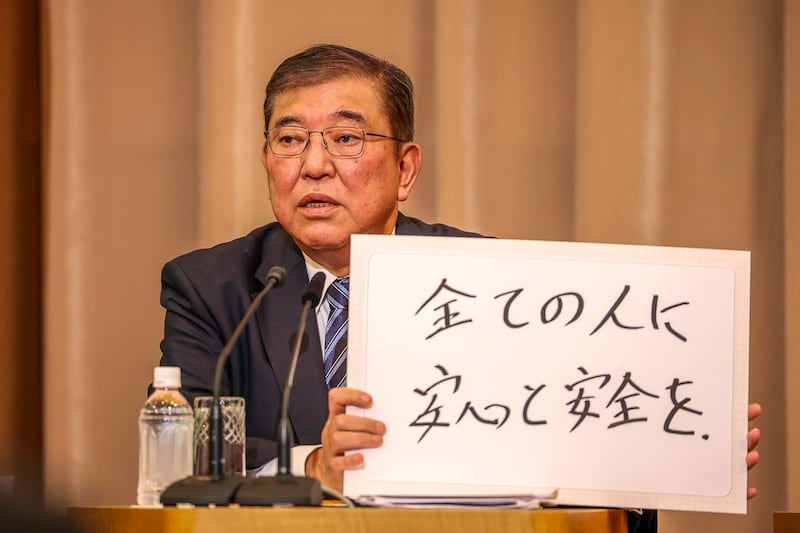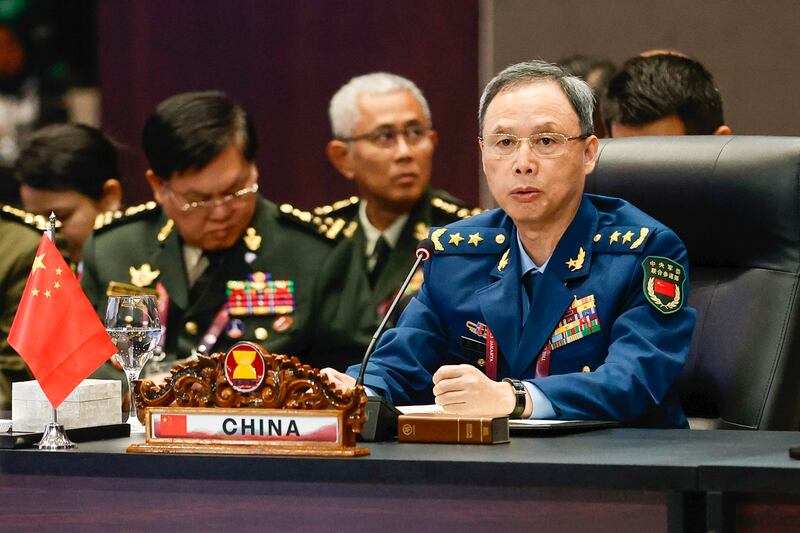A top U.S. official has rebuffed calls for an “Asian NATO” made by a leading candidate to become Japan’s next prime minister.
Japan's governing Liberal Democratic Party will next week choose its new leader and thereby anoint a successor to Fumio Kishida, who last month announced he would step down amid lagging popularity.
One of the three leading candidates to replace Kishida, the 67-year-old former Defense Minister Shigeru Ishiba, has argued that Tokyo should lead the creation of a formal security alliance in Asia similar to the North Atlantic Treaty Organization, which commits its 32 member countries to each other's defense in the event any are attacked.

But speaking at a forum on Indo-Pacific security at the Stimson Center on Tuesday, Daniel Kritenbrink, the assistant U.S. secretary of state for East Asia and the Pacific, said he thought the proposal was hasty.
“It's too early to talk about collective security in that context, and [the creation of] more formal institutions,” Kritenbrink said, advocating for a continuation of the Biden administration’s foreign-policy approach of building a “latticework” of U.S. alliances in the region.
“What we're focused on is investing in the region's existing formal architecture and continuing to build this network of formal and informal relationships,” he said. “And then we'll see where that goes.”
But Kritenbrink said Washington took a neutral stance on the internal party election.
“Maybe one final comment,” he said, “just so people don't think I'm commenting on the Japanese election – we look forward to working with whomever is elected, and I'm confident that whoever is prime minister is going to be great for the U.S.-Japan alliance.”
Asian NATO
Proposals for an “Asian NATO” have rankled Beijing, which sees itself as the ultimate focus of any such bloc in a similar way that Moscow has often blasted NATO itself for its focus on defense against Russia.
Related stories
[ South Korea, Japan and US vow ‘new era’Opens in new window ]
[ US and China spar over nuclear weapons build-upOpens in new window ]
[ NATO calls China ‘decisive enabler’ of Russia’s war in UkraineOpens in new window ]
[ Chinese and Russian bomber jets intercepted near AlaskaOpens in new window ]
At the Shangri-La defense dialogue in Singapore in June, a top Chinese military leader accused the United States of trying to slowly introduce such a security alliance by building up its historical ties between Japan and South Korea into an " institutional" alliance.

Washington was trying to create an Asian NATO as a method of "tying the region's countries to the U.S. war chariot," Lieutenant Gen. Jing Jianfeng said at the forum, describing the Biden administration's "latticework" of alliances as a stepping stone to something more.
“The real purpose is to merge the small circle into the large circle of the Asia-Pacific version of NATO so as to maintain the hegemony led by the U.S.,” he said, blaming “selfish U.S. geopolitical interests.”
But American officials have long denied any plans for such a bloc in Asia, describing the geopolitical situation in the region as different from that in Europe, with little to gain from institutionalization.
Edited by Malcolm Foster
